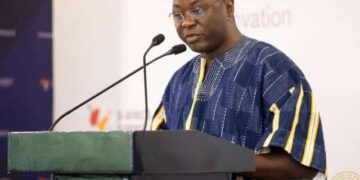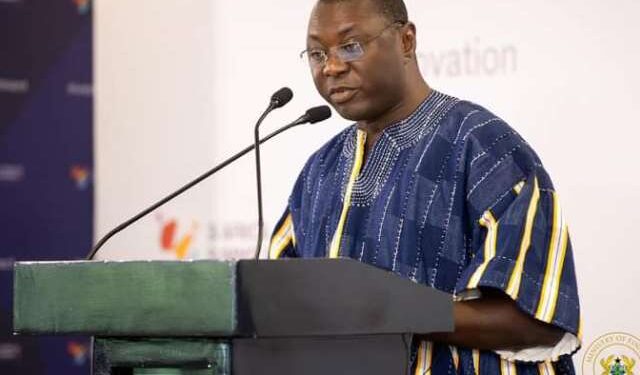The Minister of Finance, Hon. Mohammed Amin Adam, has announced an expansion in the government’s school feeding program, which now covers 4 million children, up from 1.6 million in 2016.
Speaking at the Regional Townhall Meeting and Exhibitions at GNAT Hall, Hon. Adam highlighted the government’s achievements in education and healthcare.
“We have invested more in NHIS. In 2016, the government spent GHS 1.1 billion; last year, 2023, we spent GHS 3 billion, and this year we are spending GHS 6.5 billion. That is where we are spending our money. If someone asks you where we are spending the money, we are spending the money on NHIS,” he emphasized.
Hon. Adam also addressed the economic challenges faced by the government since taking power in 2017, particularly focusing on inflation and debt restructuring. He explained the necessity of restructuring the national debt as part of an agreement with the IMF.
“The domestic exchange program the government commenced was very successful in achieving a 95% participation. On this note, I would like to appeal to the people of Ghana to forgive us. It is never the intention of any government to impose hardship on its people, more so the NPP Government that has demonstrated that we want to reduce the burden on the Ghanaian people,” he said.
He added that Ghana’s debt-to-GDP ratio has improved from 72% to 70.6%, which he noted is better than the 2015 figure.
In his speech, Hon. Adam highlighted the country’s economic growth prior to the COVID-19 pandemic and the subsequent recovery.
“Before COVID-19, this economy was growing at an average annual growth rate of 7%. In 2017, we grew at 8.1%, up from 3.4% in 2016. In 2018, we grew at 6.2%, and in 2019, at 6.5%. However, in 2020, at the height of COVID-19, we grew at 0.5%.
This drop was due to the pandemic’s shock, not poor economic performance,” he stated. Hon. Adam emphasized the rapid recovery in 2021 due to effective government policies and addressed critics who dismiss the impact of external factors like COVID-19 and the Russia-Ukraine war on the economy.
“How can you assess the performance of the economy without considering external factors, especially in a small open economy heavily dependent on external economies? Global inflation affects us,” he remarked.

































